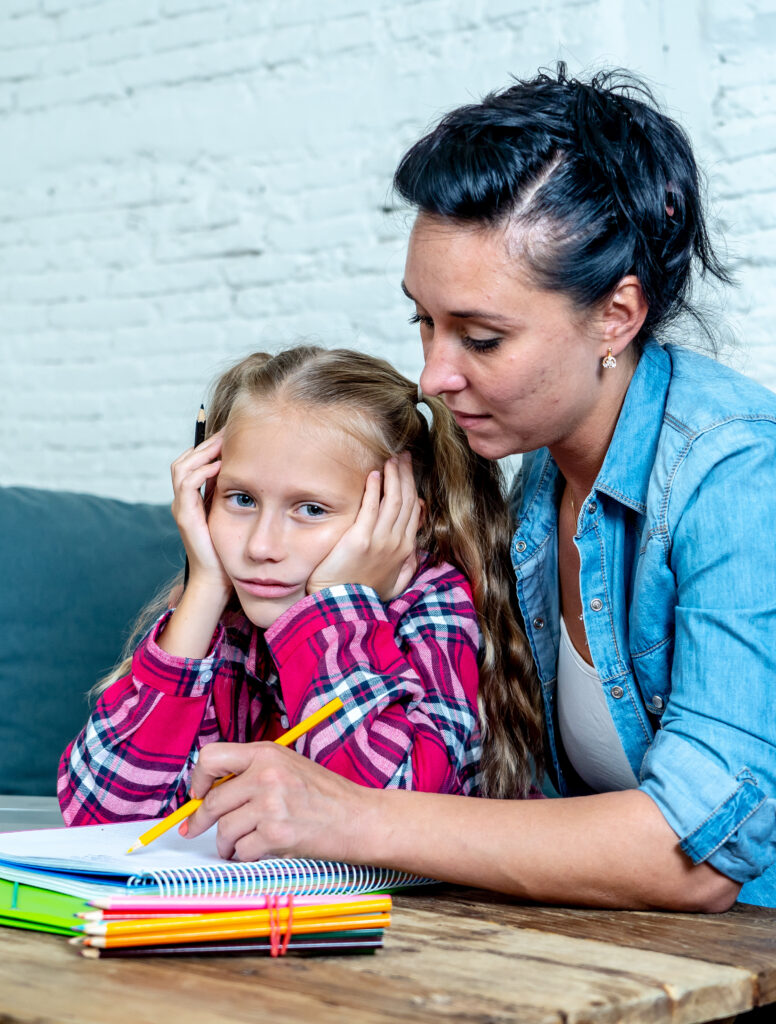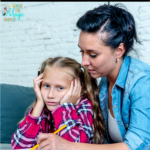Parents of struggling readers often ask me how they can help their children; and it’s no wonder that they’re interested in this essential skill. Reading plays an important role in school success, even math requires reading. One study even demonstrates that how well 7-year-olds read, predicts their income 35 years later!

Here are 10 practical recommendations for helping struggling readers at home:
1. Exploring reading will only help:
Sometimes, parents are told early experiences with reading at home is harmful, but it isn’t true. You simply can’t introduce literacy too early. I started reading to my own children on the days they were each born! The “dangers of early teaching” has been a topic of study for more than 100 years, and no one has ever found any convincing evidence of harm. Moreover, there are hundreds of studies showing the benefits of reading to your children when they are young. However, these early experiences with reading should be like eating chocolate…fun and tasty!

2. Teaching literacy isn’t different than teaching other skills:
You don’t need a college degree to raise a happy, healthy, smart child. Parents have been doing it for thousands of years. Mothers and fathers successfully teach their kids to eat with a spoon, use a potty, keep their fingers out of their noses, and say “please.” These things can be taught pleasantly, or they can be made into a painful chore. Being unpleasant (yelling, punishing, pressuring) doesn’t work, and it can be frustrating for everyone. This notion applies to teaching literacy, too. If you show your 18-month-old a book and he shows no interest, then put it away and come back to it later. If your child tries to write her name and ends up with a backwards “d,” no problem. No pressure. No hassle. You should enjoy the journey, and so should your child. As
your child gets older you can say things like “when I make a d I make it like this” or “a d looks like this when it’s in a book”.

3. Talk to your kids (a lot):
Children need to hear language in all its many forms. Drowned your child in language! Even when your child is “just a baby,” talk and sang about everything. I talked about eyes, nose, ears, mouth, and fingers. Tell about the family: mom, dad, and older brother. Talk about whatever the child is doing: yawning, sleeping, eating, burping. Hearing all this language helps to build vocabulary. Some people might think you are a bit crazy when you talk to your child so much, but children will connect all this talk to whatever they are reading. Reading is a language activity, and if you want to learn language, you’d better hear it, and eventually, speak it. Too many moms and dads feel a bit dopey talking to a baby or young child, but studies have shown that exposing your child to a variety of words helps in her development of literacy skills. As your child gets older and has areas of interest, you need to learn about whatever your child is interested in, so they will hear the language about that. Then when they read about the topic, they will have the vocabulary to go with it. This might mean learning about a sport, a video game, or music that you might not ordinarily care about but keep in mind your child does!
4. Read to your kids:
I know everyone says this, but it really is a good idea… specially with struggling readers. Reading to children of all ages lets them know you value reading, just like shooting a basketball with them or kicking the soccer ball in the yard does. One of my teacher friends refers to this advice as the “chicken soup” of reading education. We prescribe it for everything. (Does it help? It couldn’t hurt.) If a parent or caregiver can’t read or can’t read English, there are alternatives, such as using audiobooks; but for those who can, reading a book or story to a child is a great, easy way to advance literacy skills. Research shows benefits for kids as young as 9-months-old, and it could be effective even earlier than that. Reading to kids exposes them to richer vocabulary than they usually hear from the adults who speak to them, and can have positive impacts on their language, intelligence, and later literacy achievement. What should you read to them? There are so many wonderful children’s books. Visit your local library, and you can get an armful of adventure. You can find recommendations from the children’s librarian at your local library. Many of them have a quick survey to help them understand books to recommend for your child. Then encourage your child to look at the books later that you have shared together!

5. Have them tell you a “story”:
One great way to help struggling readers improve their literacy skills, is to take their dictation. Have them recount an experience or make up a story. We’re not talking about writing a book here. A typical first story may be something like, “I like fish. I like my sister. I like grandpa.” Write what the child says as it is being told to you, and then read it aloud. Point at the words as you read them or point at them when your child is trying to read the story. Over time, with lots of rereading, don’t be surprised if your child starts to recognize words such as “I” or “like.” (As children learn some of the words, you can write them on cards and keep them in a “word bank” for your child, using them to review later. You can play games with the word cards too.) I like the children to draw a quick picture of what they wrote as a way of helping them make the connection between the words they said and what they had in mind. I did the same thing with my own children as they got older, and they want to write about topics of interest, but they didn’t know how to write the specialized vocabulary. We would share the pen and they would write the common words and I would write the specialized vocabulary. Sometimes I had to look up how to write the names of dinosaurs, but it is okay for the children to see you don’t know how to write everything.
6. Teach phonics (letter names and their sounds):
You can’t sound out words or write them without knowing the letter sounds. Most kindergartens teach the letters, and parents can support that learning, too. I just checked a toy store website and found 282 products based on letter names and another 88 on letter sounds, including ABC books, charts, cards, blocks, magnet letters, floor mats, puzzles, lampshades, bed sheets, and programs for tablets and computers. You don’t need all of that (a pencil and paper are sufficient), but there is lots of support out there for parents to help struggling readers learn about letters and sounds. Keep the lessons with your struggling readers brief and fun, no more than 5–10 minutes. This should be all about playing with the words the child cares about like the names of family members, animals, colors, favorite foods, and activities.
7. Listen to your child read:
When your child starts bringing books home from the library or school, have him read to you. If it doesn’t sound good (mistakes, choppy reading), you may read a sentence and your child may read after you. Or read it to him, and then have him try to read it himself. Studies show that this kind of repeated oral reading makes students better readers, even when it is done at home. When listening to your child read, make comments about the meaning of the story. Afterall, that is the purpose of reading, building meaning. If your child gets stuck on a word, say things like:
♥ Does that word make sense there?
♥ Does that word sound right there?
♥ Let’s check the first letter or so and see if it could be that word?
♥ Tell the word when necessary to keep the story going.
♥ Sometimes, don’t say anything and just let them keep reading and see if the word he said still works.

8. Promote writing:
Literacy involves reading and writing, this is a very important connection that cannot be ignored when helping struggling readers. Having books and magazines available for your child is a good idea, but it’s also helpful to have pencils, crayons, markers, and paper. Encourage your child to write. One way to do this is to write notes or short letters to your child. It won’t be long before she is trying to write back to you.
9. Ask questions:
When your child reads, get him to retell the story or information. If it’s a story, ask who it was about and what happened. If it’s an informational text, have your child explain what it was about and how it worked, or what its parts were. Reading involves not just sounding out words but thinking about and remembering ideas and events. Improving reading comprehension skills early will prepare her for subsequent success in more difficult texts. You can do this same thing when you watch a TV show or movie together. Talk about what you are wondering as you watch the show to let your child know that you are thinking about what you are watching.
10. Make reading a regular activity in your home:
Make reading a part of your daily life, and kids will learn to love it. In the summer when I was five or six years old, my mom had me stay in for a half-hour after lunch to read. That became my favorite part of the day and I often read for longer periods of time as I got older. Dad took me to the library to get books to kick off this new part of my life. It made me a lifelong reader. Set aside some time when everyone turns off the TV, the phones, and the web and does nothing but read. Make it fun, too. When my children finished reading a book that had been made into a film, we’d make popcorn and watch the movie together. The point is to make reading a regular enjoyable part of your family routine.
Happy reading!


Leave a Reply